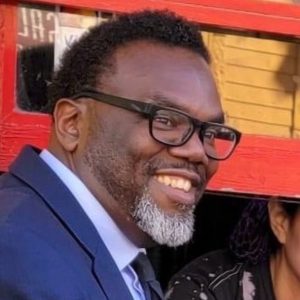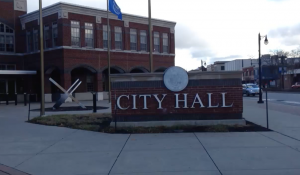Story by: Jon DePaolis
April 22, 2009 – The foreclosure crisis has devastated neighborhoods all over Chicago, but as described at a community meeting convened by the Rogers Park Community Development Corporation (RPCDC) March 21, Rogers Park has been one of the hardest hit.
It has also received relatively little attention since many of the neighborhood’s foreclosures are in condominium buildings where foreclosures aren’t as obvious.
There were 288 foreclosure filings in 2008 in Rogers Park, which amounted to 54 filings per 1,000 mortgageable properties, according to the Woodstock Institute. The increase in filings over the course of a single year equaled out to a 157 percent change from 2007 to 2008.
Condos by far had the most filings with 231. Two- to six-unit properties had 32 filings, and one-unit properties had 24 filings in the neighborhood.
“We took a look at the data from 2007-08, and in terms of the numbers of filings, the north side of Chicago is getting hit at a greater rate, and you could say we’re catching up to the rest of the city,” said RPCDC associate director Heather Hain. “We’re getting ours.”
More than 40 people attended the RPCDC event last month at the Indo American Center, 6328 N. California Ave. It was one of a series of five foreclosure prevention events on the north side, which has not received as much government assistance for foreclosures as the south and west sides.
“Our goal was to offer an informational and education setting to invite both homeowners and renters who were concerned about foreclosures,” said Hain.
The organization targeted people in two area codes, 60626 and 60645, who are facing foreclosure or at risk of foreclosure. There was a particular focus on condo foreclosures.
Condo foreclosures have been a problem citywide, increasing from 12 percent of total foreclosure filings in the city in 2007 to 19 percent in 2008, according to The Woodstock Institute.
In Rogers Park, condo developments have stopped in the middle of construction and some condos haven’t been able to turn associations over to new owners because the buildings haven’t been up to full capacity, according to Hain and Woodstock Institute vice president Geoff Smith.
There were buyers who bought more units than they could afford, planning to sell them quickly but ending up without a market to sell the units, Smith said. “Their options evaporated and they couldn’t afford higher monthly payments.”
Smith expects condo foreclosure to continue to grow, mainly because condos were considered to be the most affordable option for first-time homebuyers.
Speakers at the RPCDC event included Brian White of the Lakeside Community Development Corporation, Brenda Grauer from the Illinois Attorney General’s Office, Rebecca McDannald of the Metropolitan Tenants Organization, bankruptcy law expert Brendan Stevens and community activist Mary Hunter.
Local homeowner Alice Singleton, who blogs for The Huffington Post and is filming a documentary about the economic collapse, also shared her recent experiences coming within “a hare’s whiskers” of foreclosure, she said.
Singleton had a standard mortgage for 30 years with a fixed rate, but a month after getting the mortgage, she lost her job.
“I had just moved one month before, and all my savings were gone,” Singleton said. “I couldn’t get Citibank on the phone to talk to me. It was brutal. I was referred by the city of Chicago to Heather Hain and her group, and they helped me.”
Woodstock Institute vice-president Geoff Smith feels that while all parts of the country are experiencing foreclosure problems, some places have it much worse.
“If you look at the major cities, [Chicago] is on par, in the middle,” he said. “In places like Las Vegas, Phoenix, Detroit and Cleveland, these cities have very high foreclosure rates.”
In Phoenix, a housing bubble burst causing plummeting property values and many foreclosures, Smith said. Bad loans and the weak economy have also driven foreclosures nationwide.
”Chicago is a combo of both of those,” Smith said. “Property values were never as high here as in those other cities.”
In regards to Rogers Park and other parts of the north side having giant percentage increases in foreclosures over the past year, Smith notes that the north side didn’t have a lot of foreclosures previously so when a considerable amount happened, percentage increases ballooned.
“In some of those areas, you’re seeing property values declining,” Smith said, which is another reason that the filings increased.”
Singleton finds poetic justice in the problems that the north side is facing right now, since residents with poor credit histories or other issues that once made it difficult for them to get loans are now suffering from being granted loans too loosely in a credit climate she describes as the “wild, wild west.”
“It’s almost like one of those old twilight zone episodes where you ask the devil to grant you eternal youth, and you wind up in jail the rest of your life,” Singleton said. “It’s ironic.”











Be First to Comment